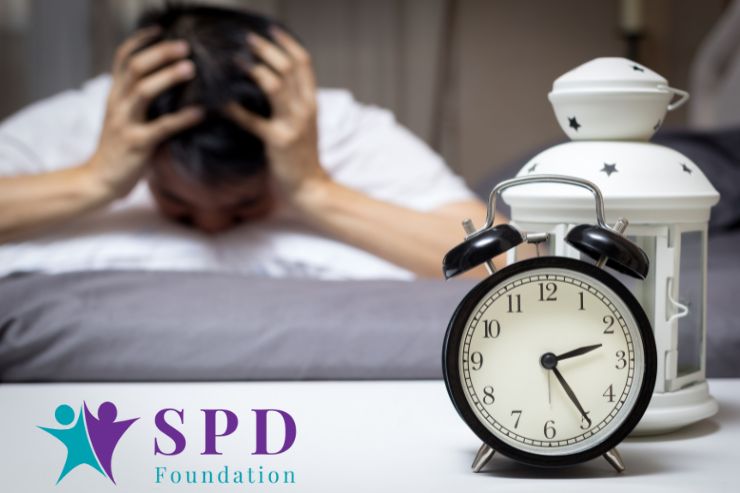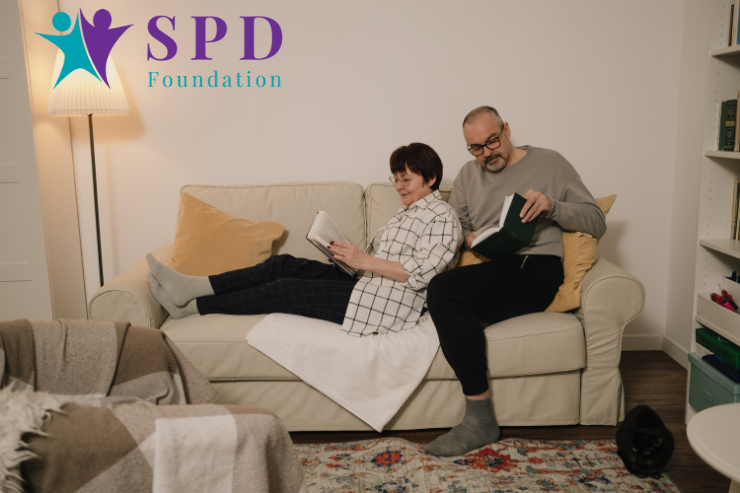Sensory Processing Disorder (SPD) is a neurological condition that affects the way the brain processes sensory information. While it is most commonly diagnosed in children, it can persist into adulthood and have a significant impact on an individual’s quality of life.
Adults with SPD often have difficulty focusing on a single sound or conversation in noisy environments. This is because their brains struggle to filter out extraneous noise, making it hard to concentrate on the task at hand. This challenge can lead to feelings of frustration, irritability, and anxiety in social situations and can even impact work performance.
Strong Reactions to Senses
- Over-sensitivity: For someone with SPD, everyday noises like a dog barking or the clatter of dishes might be overwhelming, leading to anxiety or a need to escape the noise. Similarly, textures like tags in clothing or carpets might feel excessively irritating or even painful.
- Under-sensitivity: Individuals may not notice injuries, such as cuts or bruises, until they see them, or they might wear inappropriate clothing for the weather because they don’t feel cold or hot like others do.
Trouble Ignoring Background Noise

This difficulty can lead to significant challenges in environments like open office spaces or busy markets, where multiple conversations and noises constantly occur. It can result in withdrawal from social interactions or decreased productivity at work.
Seeking Extra Sensory Input
This seeking behavior can sometimes be misconstrued as disruptive. For instance, an adult might tap on desks or click pens during meetings, not merely out of habit but as a necessary way to stay focused and calm.
Clumsiness and Coordination Issues

This can extend to sports or physical activities, where poor coordination and balance might make team sports challenging. Social dances or gym classes could also be difficult, affecting social participation and physical health.
Overwhelm Leading to Meltdowns
Such meltdowns are not just emotional reactions but physical responses to overload. They might need to withdraw suddenly from activities they were engaged in, which can be confusing for others around them who do not understand the intensity of their experience.
Difficulty with Changes

Even small changes, like a rearranged room or a shift in a meeting schedule, can provoke significant stress. Such difficulties can make workplace environments and relationships hard to navigate, especially when flexibility and adaptability are expected.
Challenges with Time Management
This can manifest as chronic lateness, missed deadlines, or underestimating the time required for daily routines, such as getting ready in the morning or commuting. It’s not just poor planning but a genuine difficulty in sequencing tasks efficiently.
Social and Emotional Challenges

Emotional responses might be unpredictable or inappropriate in social settings. For instance, a person with SPD might laugh at a loud noise or appear indifferent in emotionally charged situations, not out of insensitivity but because their sensory processing issues dominate their reactions.
Light and Visual Sensitivity
This sensitivity can make driving at night or working under fluorescent lights problematic. It might necessitate wearing sunglasses indoors or avoiding places with strobe lights or overly bright digital screens.
Reactions to Smells and Tastes

This could mean avoiding certain restaurants or social events where the presence of specific smells (like seafood or heavy spices) is anticipated. It can complicate social interactions and limit social dining experiences, affecting their social life and even dietary intake.







